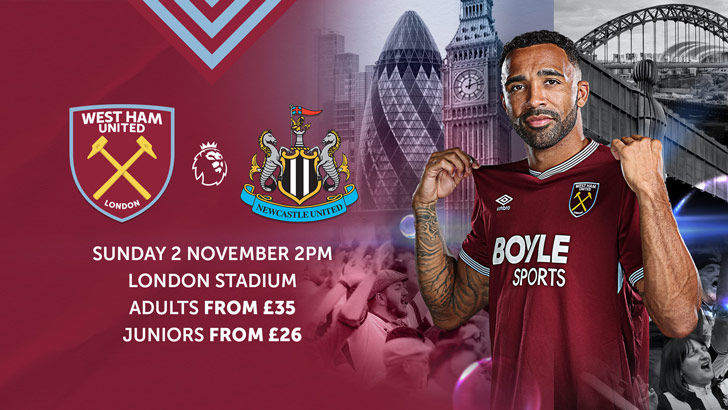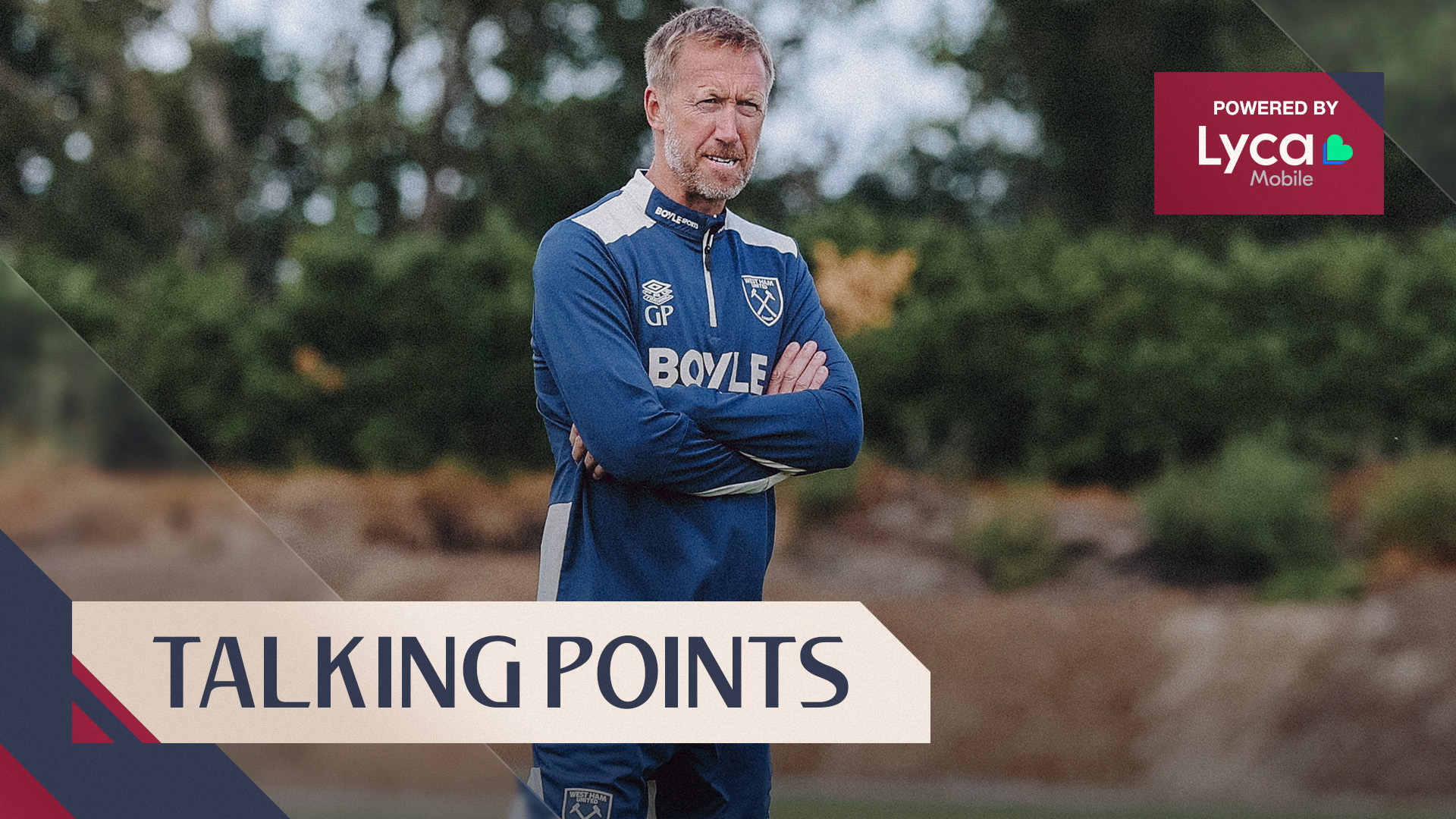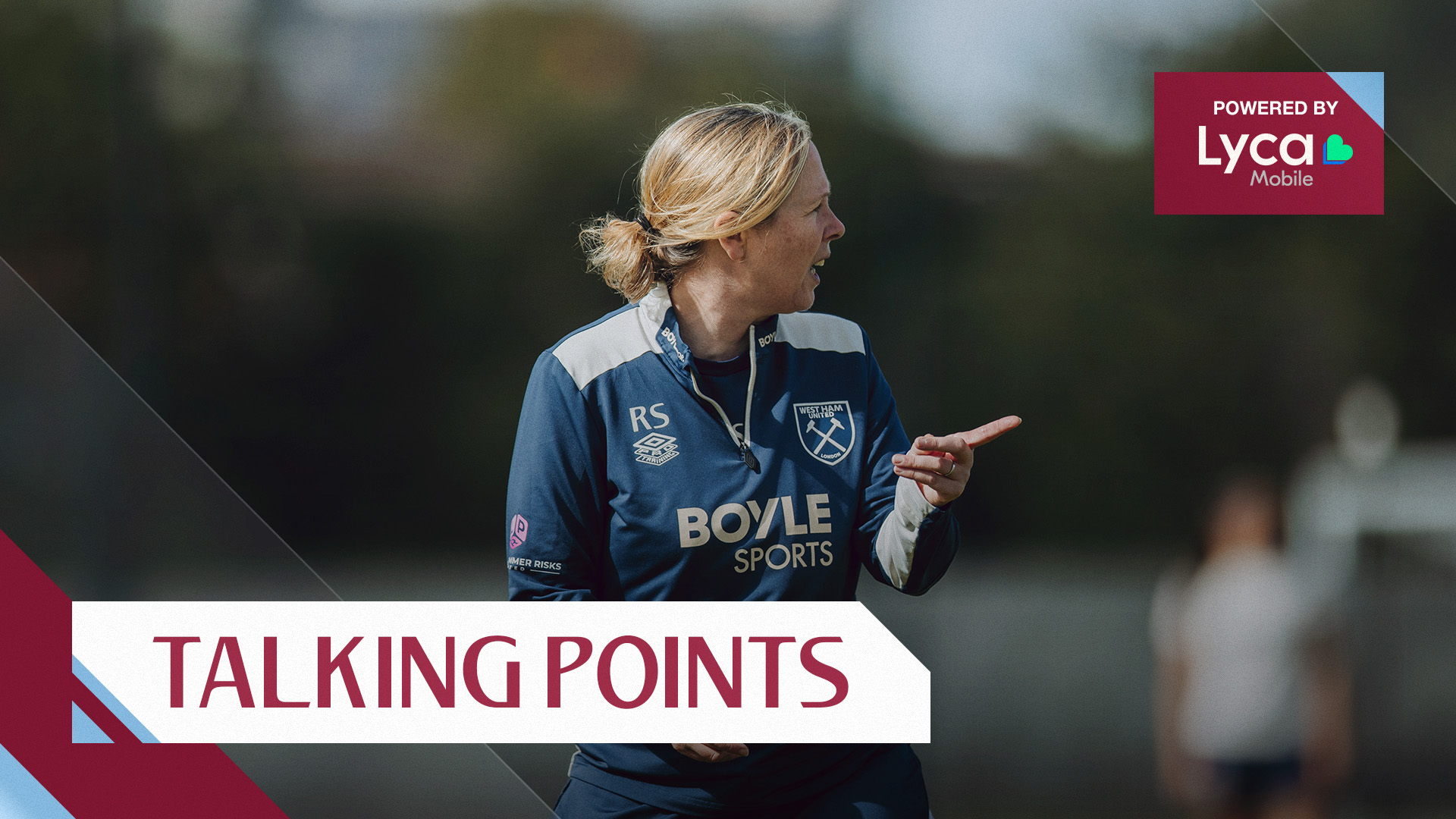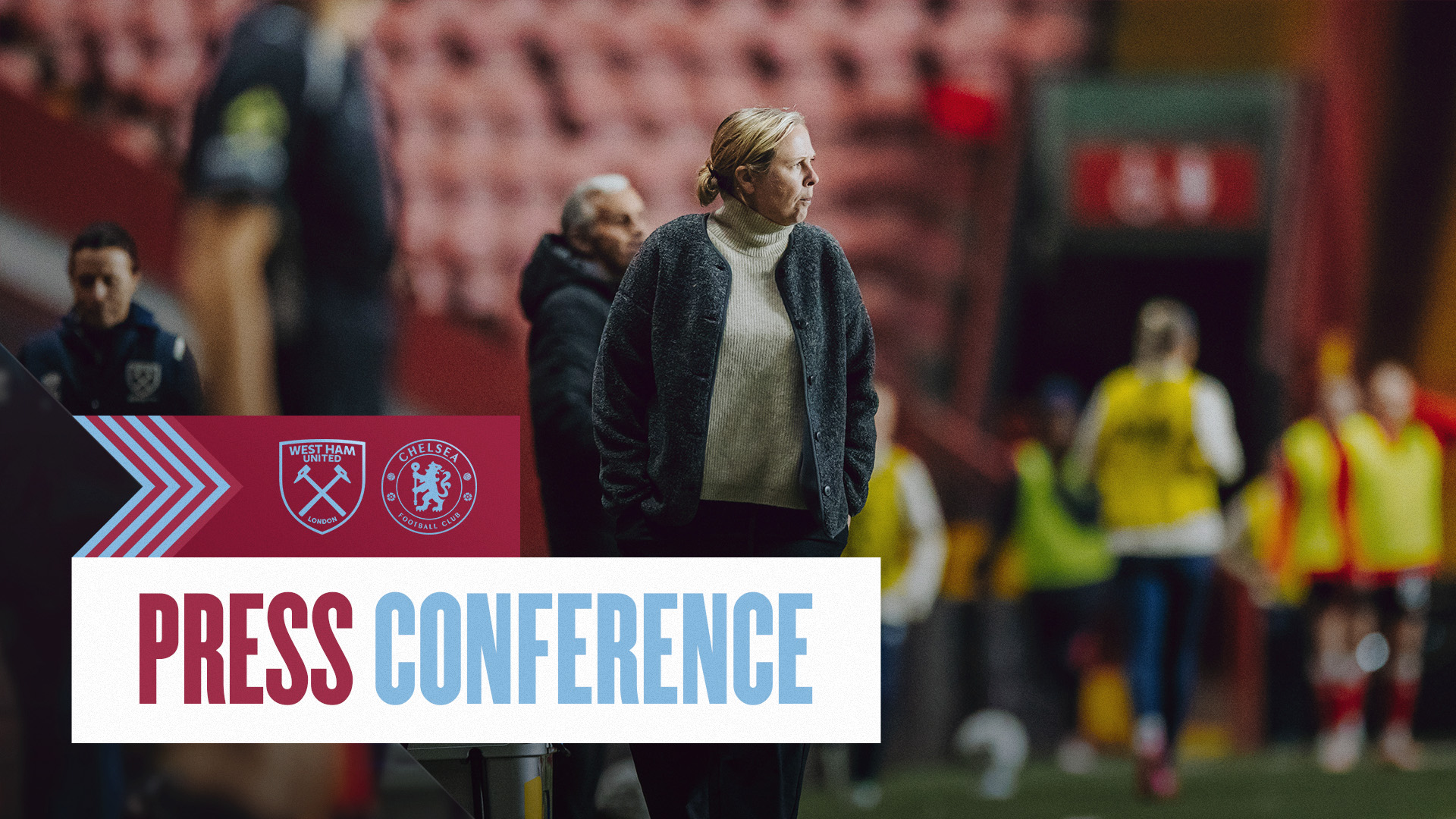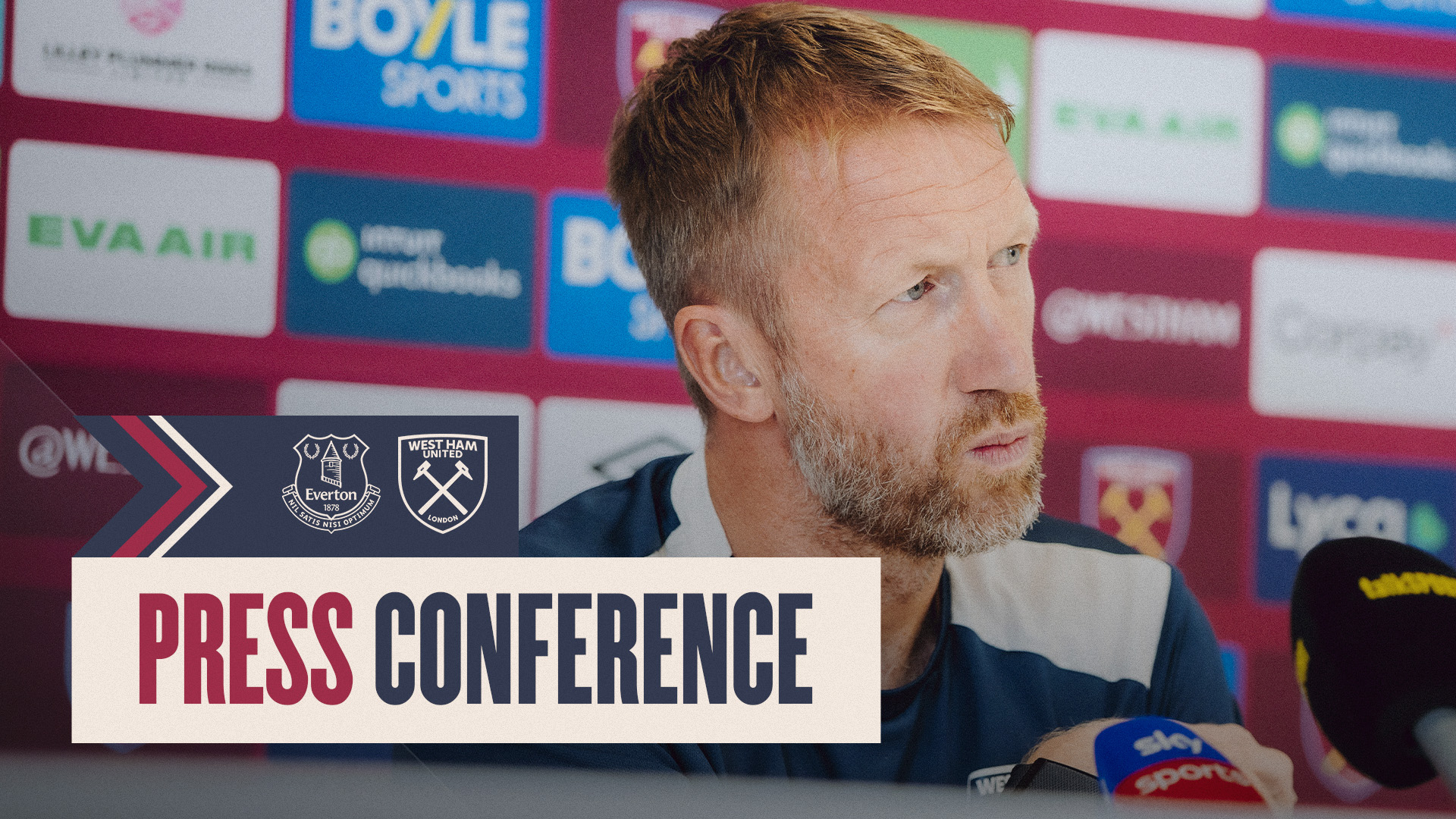Head Coach Graham Potter is the embodiment of controlling the controllables and focusing totally on his job at hand – helping West Ham United improve performance levels and win football matches.
While he admitted in his pre-match press conference ahead of Monday’s Premier League fixture at Everton that criticism of recent displays and the resulting speculation have been fair, Potter also made it clear that listening to or engaging with external negativity would do nothing to help him or his players in their work.
Potter is grateful to have the opportunity to work as one of 20 head coaches and managers in the best league in the world, but knows that the privilege is one that could be taken from him should West Ham’s form and league position not pick up.
At the same time, the 50-year-old also spoke about the need for context around performances and results, whether that be the status of the squad he inherited in January, the arrivals and departures since then, injuries, red cards and suspensions, big chances taken and missed, errors made, off-field circumstances and simple good and bad luck.
All those factors, and others, have played their part in a points return Potter knows is not sustainable if the Hammers want to be challenging in the top half of the table, and the Head Coach is determined to do what he can to control as many controllables as possible, improve performance levels and win football matches – starting at Everton on Monday evening.
I think you have to accept at the highest level that the margins are small and you can’t wait for those to come round for you and turn your way. You have to keep working.
You have to accept the reality of the situation and then you have to keep moving forward and try to change it. So that’s the job, that’s the life. We’re looking forward to changing that dynamic.
I think every Premier League job is a hard job, that’s stating the facts. It’s normal because it’s the highest league. If you think about how many coaches there are around the world and if you find yourself one of the 20 coaches in the Premier League, by definition, it’s hard.
Every team is good. Every coach is good. There are resources everywhere, so every job is hard.
In terms of this job, whether it’s any harder than I expected, you don’t know how things are before you go in and then you have to look and then, once you’re in, you have to make your assessment. But from the outside, I thought this was going to be a challenge and that’s why I took the job.
It’s an incredible challenge, it’s an exciting challenge. When you use words like ‘hard’ or ‘challenge’, automatically people think that’s negative. It’s not.
I think if you want to do something important and special, you have to accept that there are moments when it’s really difficult. Otherwise, what’s the point? Anything that’s worth having or doing in life, you have to accept that there’s going to be struggle and you have to be ready to deal with that.
I’ve been coaching for 15 years, 20 years, and every single job in football is tough because the margins are small.
The nature of the game is so challenging. The best team sometimes doesn’t win. It can be unfair, all that stuff.
Always you have to assess at every point along the way, where is the club at? Where are we at? Now, if your assessment is ‘everything’s great, the culture’s great, environment’s great, the team has had lots of investment, it’s all positive, you’ve got a young, dynamic group of players with hunger’, then OK, that’s one start point.
If the start point is slightly different, then clearly the challenge is different. It’s always the way.
The noise doesn’t affect me. I don’t listen to that.
It’s your job [in the media] and other people’s job to create speculation. It’s part of the noise of the Premier League. It’s part of what you sign up for [as a Head Coach].
So if results aren’t good, which they haven’t been and no-one’s shying away from that, the results aren’t what we want, then there’s always speculation, there’s always noise, there’s always negativity. There’s nothing to complain about from that, (4:17) from my perspective.
We have had conversations between the Board and myself, like we do every week – positive talks.
But we all understand as well where we’re at and we all want to improve. As I said before, no-one’s happy with where we’re at.
At the same time, you have to look at the context and the situation and you have to not get caught up in the noise.
It sounds obvious. I’d like it (results) to change now, tomorrow, the next game, of course. We all want that. But we play sport, it’s football, in the highest league, so nothing is straightforward.
We just focus on what we can control and not worry too much about time frames and things like that, that I can’t do anything about.
I’ve had 50 years of life and 20 years of doing the job [of a head coach] and, in summary, that is what I draw upon.
You have to understand, we’re in an emotional world. People want things quick and I completely understand that and when results aren’t going well, there’s a lot of emotion, there’s a lot of pain. People are hurting and often they want somebody to blame.
It’s not easy to analyse why results at a football club aren’t what you want. It’s not easy to make that assessment and so therefore, like I said, it’s clear, especially if you think the results should be better, then the natural conclusion is the coach is the problem.
And if that’s the case, I’ve always said then everybody knows the consequences of that. If you look at it slightly differently and if you make a different assessment of the situation, then you can come to a different conclusion. But again, that’s not for me to tell anybody how to think. That’s up to them.
We’re all the same [as Premier League head coaches and managers]. If you don’t win enough, then you’re under pressure, you’re under scrutiny, you’re all that sort of stuff.
And as I said, if the problem is the head coach and that’s the narrative or that’s the thinking, that’s the conclusion. And if results aren’t good enough, because as I said, they’re not, they haven’t been, then yeah, the consequences are the consequences. But again, there’s another way to look at it. Whether we do in this world is another thing.
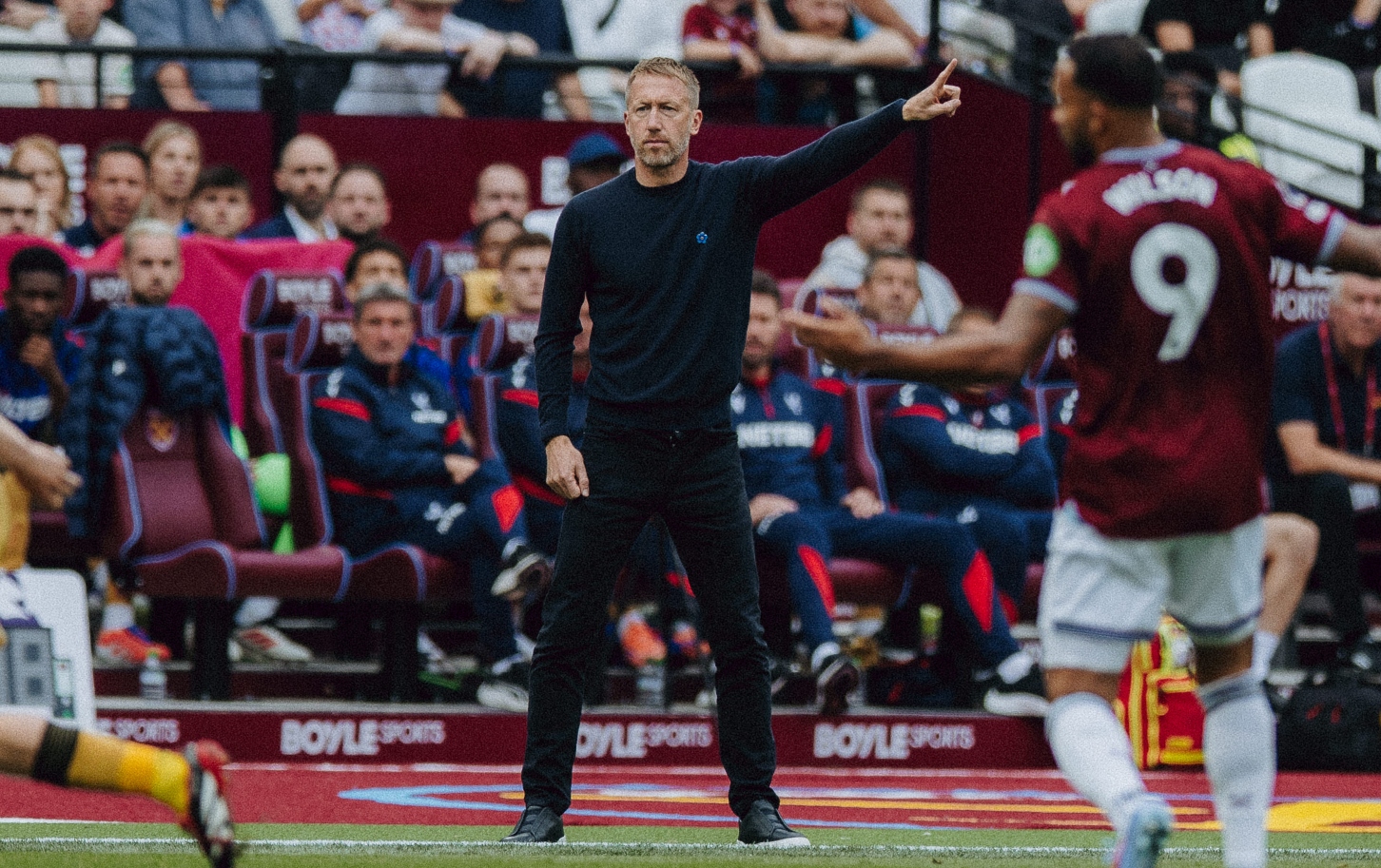
Everton have been good, as you’d expect from a David Moyes team – very well organised, they’ve made some good additions in the summer and they’ve got the new stadium, which has obviously given everybody a lift.
We’re looking forward to going and playing there. But they’ll be strong, it’ll be a tough game.
I think in most Premier League games, in every Premier League game actually, there’s always more than one [opposition player to look to stop]. We’re aware of Jack Grealish’s quality, of course, but I think they’ve done well.
Beto’s a threat for them up front, and Iliman Ndiaye coming off the side with Jake O’Brien pushing on is a threat for them. Kiernan Dewsbury Hall finds good spaces. So they’ve got lots of options in the attack, and as I said, it’ll be a tough game.
I’d love us to replicate our performance and result at Nottingham Forest but no two games are the same.
Obviously, if you said to me we could keep a clean sheet and score three goals [at Everton], I’ll take that now, obviously.
We did a lot well [at Forest]. I think against Sunderland, ironically, we did a lot well up until we conceded the goal, and then we didn’t do so well. So there are always bits in games that you can take, but obviously, from our perspective, we need to be good.
We need to be better than we were in the first half against Crystal Palace in terms of our balance between defence and attack. I thought we got that wrong. So that’s something we need to improve.
As head coaches or managers, this is something we all sign up for.
We understand if results aren’t good and you’re not winning enough, then you have to face that and you have to own up to that and you have to take that responsibility. As I said, there’s also part of the job that you have to look at context, you have to look at where the club was, where the club has been, where the club’s at and realistically what is needed to improve.
We live in a world where we want things instantly but whenever you do something meaningful and important, sometimes it takes some time.
But at the same time, in the world we are, if short-term results aren’t good enough, you understand what happens. But that’s nothing I can control. And not just as a manager as well but perhaps as a human being.
Pressure part of the job, it’s something you sign up for and at some level you’ve got to be grateful for it because it allows you to grow, it takes you to the brink, it takes you to the edge of your capability and that makes you a better person.
Football’s easier when you’re winning every week. It’s great coming to these things and talking to press when you’re winning all the time but the reality of it is it doesn’t always happen like that.
And then you have to deal with it and I think the responsibility of the head coach of a club like West Ham is you deal with it as well as you can in your own way, with integrity, with respect and go forward and try and help the team improve.
